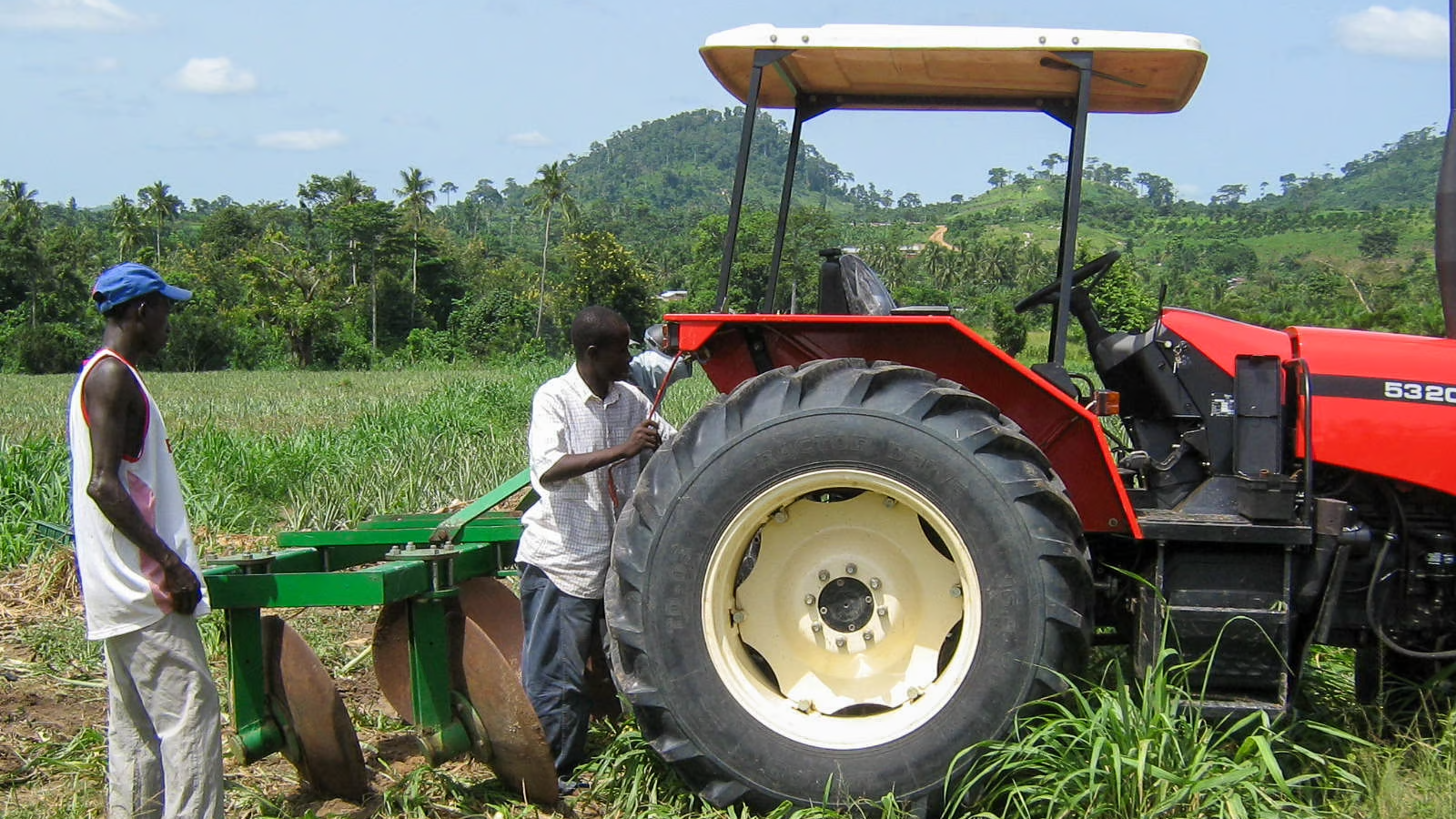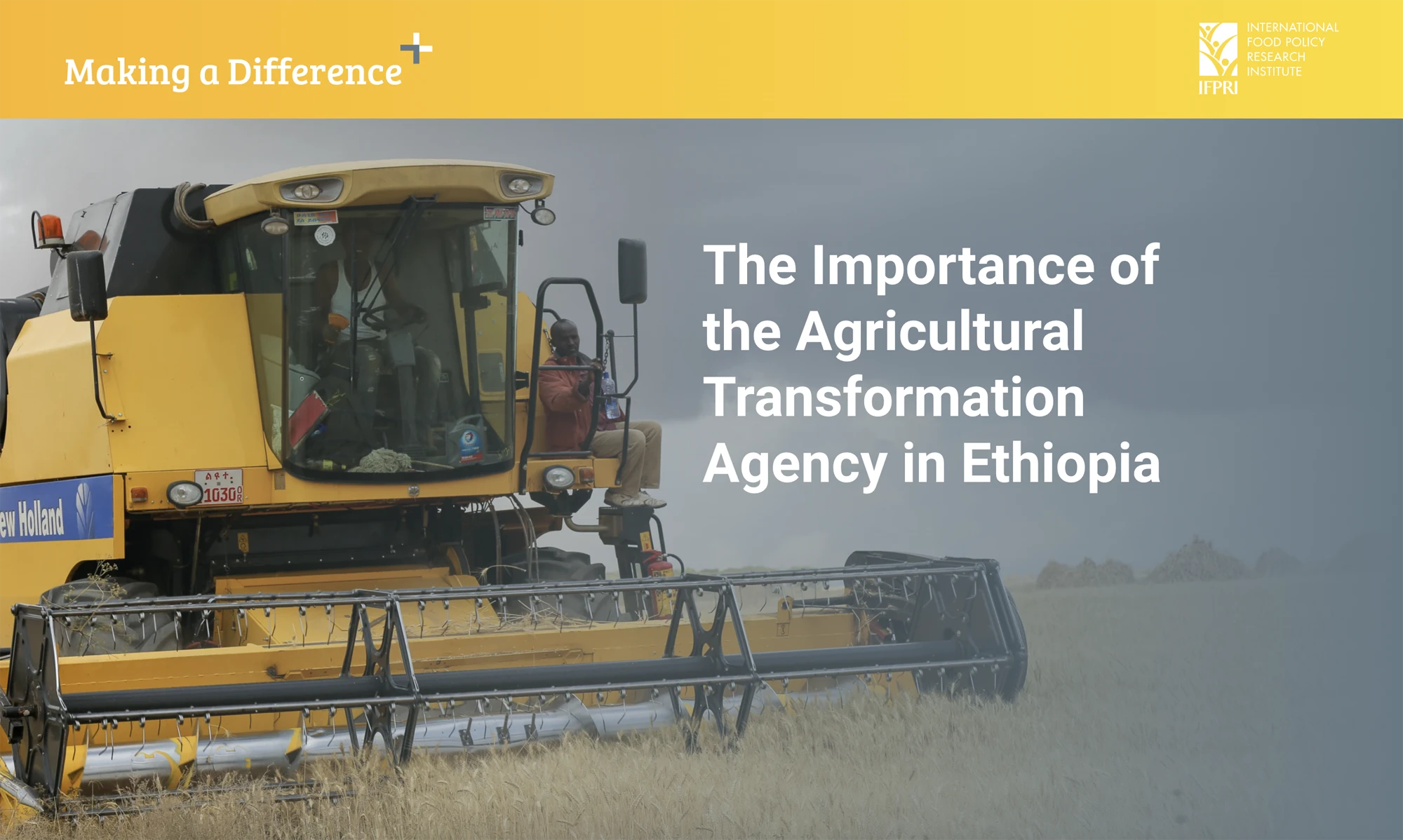
IFPRI’s Approach to Impact
Our Approach to Impact
IFPRI creates impact by working with partners to shape policies, programs, interventions, and institutions in ways that catalyze lasting, significant, and measurable improvements to food system outcomes.
We produce actionable, demand-driven research that follows four primary impact pathways. The changes influenced by our research often include improvements in policies, programs, research methods and tools, or research capacity among our partners. These changes may then lead to further positive downstream impacts on development, including improved food and nutrition security, better livelihoods, gender equity, environmental sustainability, reduced poverty, and other aspects of well-being around the world.
Our impacts are aligned with CGIAR’s five impact areas:
- Climate adaptation & mitigation
- Environmental health & biodiversity
- Gender equality, youth & social inclusion
- Nutrition, health & food security
- Poverty reduction, livelihoods & jobs
Externally validated impact work
IFPRI commissions independent, peer-reviewed assessment reports of the Institute’s impact within specific research themes, countries, or regions. These reports assess IFPRI’s impact, but also outline conceptual and methodological approaches used to determine impacts, which vary across topics and contexts.
Methodologies include tracking outputs such as publications, citations, Altmetric scores, and institutional rankings to assess influence on academic discourse. We also conduct in-depth interviews with partners and beneficiaries to establish an impact pathway within policy, research, and development settings. Other methods involve scoping policy or institutional documents for evidence of the use of research, and using modeling techniques to analyze impacts on development indicators.
Internally validated impact work
IFPRI publishes blogs, brochures, slide decks, and other communications products about our impact. These products are peer reviewed by researchers and partners.
Data collection
IFPRI’s impact team continually collects and updates data on the Institute’s impact and impact methodologies, so that IFPRI staff can share evidence of impact and exchange ideas on how to best measure impact for specific programs, projects, and activities.
Coordination with CGIAR evaluation mechanisms
To avoid duplication, IFPRI coordinates with CGIAR’s assessment and evaluation mechanisms. These include CGIAR’s Independent Advisory and Evaluation Service (IAES), which serves as the secretariat for the Independent Science for Development Council (ISDC) and the Standing Panel on Impact Assessment (SPIA), and implements CGIAR’s multi-year independent evaluation plan.
Impact Pathways
IFPRI’s research, communications, and capacity building efforts aim to move along an impact pathway, influencing improvements in policies, programs, research methods, and human or institutional capacity to undertake research or use evidence to make policies. Some of these changes continue along the impact pathway to make a sustained difference for food and nutrition security, livelihoods, gender equity, environmental sustainability, and poverty reduction.
IFPRI has identified four primary impact pathways to describe the diversity of our work, which we carry out with hundreds of partners:
Generating evidence on emerging topics to shape global research and development agendas
IFPRI’s high-quality empirical research often uncovers patterns and trends that may be unknown to key decision-makers. Communicating these results can help set global, regional, and national research and development agendas, and catalyze new investments.
Testing innovations, interventions, and approaches to inform decisions on scaling up
IFPRI evaluates individual or combined innovations, interventions, or approaches used by individuals, households, market actors, and communities. IFPRI researchers measure these interventions’ effects on specific outcomes, including costs, benefits, and their distributions. These results can inform decisions on whether to invest further in scaling up or influence others to replicate these efforts.
Providing diverse types of evidence to help shape national and regional strategies, policies, and investments
IFPRI generates evidence to help national governments assess strategies, policies, laws, acts, institutions, regulations, programs, and public investments from global to subnational levels. This includes testing policies, investments, or programs that have already been implemented (ex post), assessing potential policy or investment options (ex ante), and analyzing policymaking processes.
Strengthening research methods and capabilities and advancing knowledge through partnerships and capacity strengthening
IFPRI supports researchers and research organizations by developing research methods and tools and providing training and opportunities for collaborative research. The Institute also collects and disseminates unique databases, and analyzes organizational performance. These efforts aim to build the capability of researchers and organizations to provide evidence in support of agenda setting, to test innovations, and to change policies.
Measuring the impact of IFPRI’s activities presents several challenges
- Research and expert guidance are only a few factors that policymakers consider in their decision-making processes. Therefore, when policy changes are enacted, it is often difficult to measure the importance of IFPRI’s contribution to the outcome.
- Finding common measures of impact across sectors is complex, especially as IFPRI’s work increasingly covers entire food systems.
- It takes many years for policy changes to meaningfully impact people’s lives. As such, most of IFPRI’s impacts are long term.
- When changes to policies and programs are implemented, the research that informed these changes only contributes indirectly to the impacts of those programs on food and nutrition security, gender equality, sustainability, and other food systems outcomes.
- It is challenging to know how, in the absence of IFPRI’s activities, policies and impacts on target populations might have been different.
To overcome these challenges, IFPRI draws on numerous information sources, including rigorous impact assessment studies and modeling analyses, to provide compelling evidence of how our work improves food systems.
What’s New
-

Models as assets for food security: The impacts of IFPRI’s IMPACT, RIAPA, and SPAM models
Essential tools for shaping policies and decisions.
-

Making a Difference: How farmers in Ghana benefit from the Agricultural Mechanization Services Enterprise Centers Program
Making tractors accessible and affordable to smallholders.
-

The importance of the agricultural transformation agency in Ethiopia
IFPRI’s work in catalyzing innovation.



